Egypt will host the next UN Global Climate Conference (COP 27) from November 6-18. Egyptian Environment Minister Yasmin Fuad said Oct. 24 that all stores and food stores in the city will use cloth or paper bags.
On the occasion of the climate conference, on September 17, 2022, volunteers volunteered to collect bottles, cans and other plastic waste floating on the Nile River to build a "plastic pyramid" on the Nile, which became a "giant symbol" of the country.
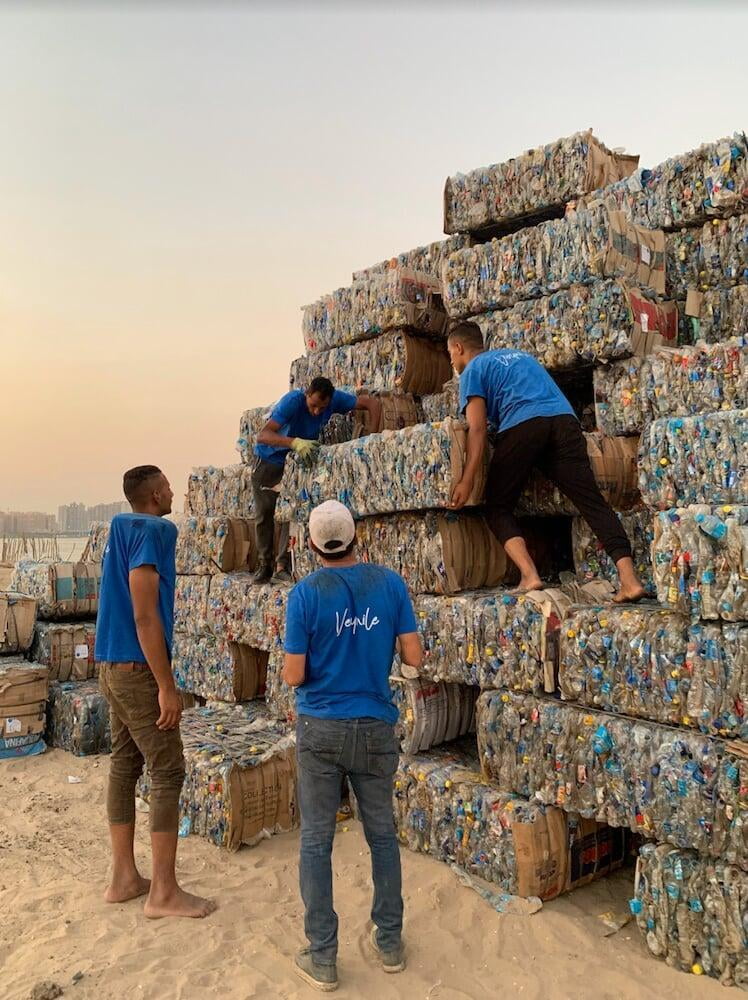
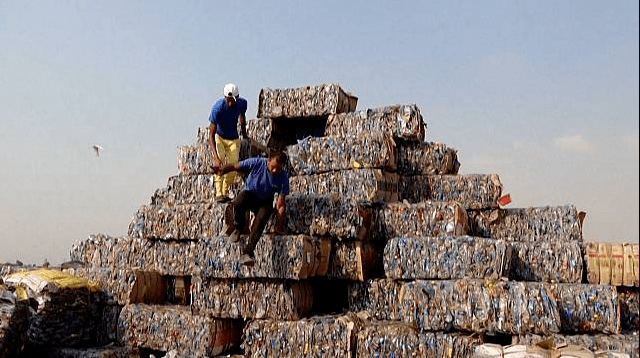
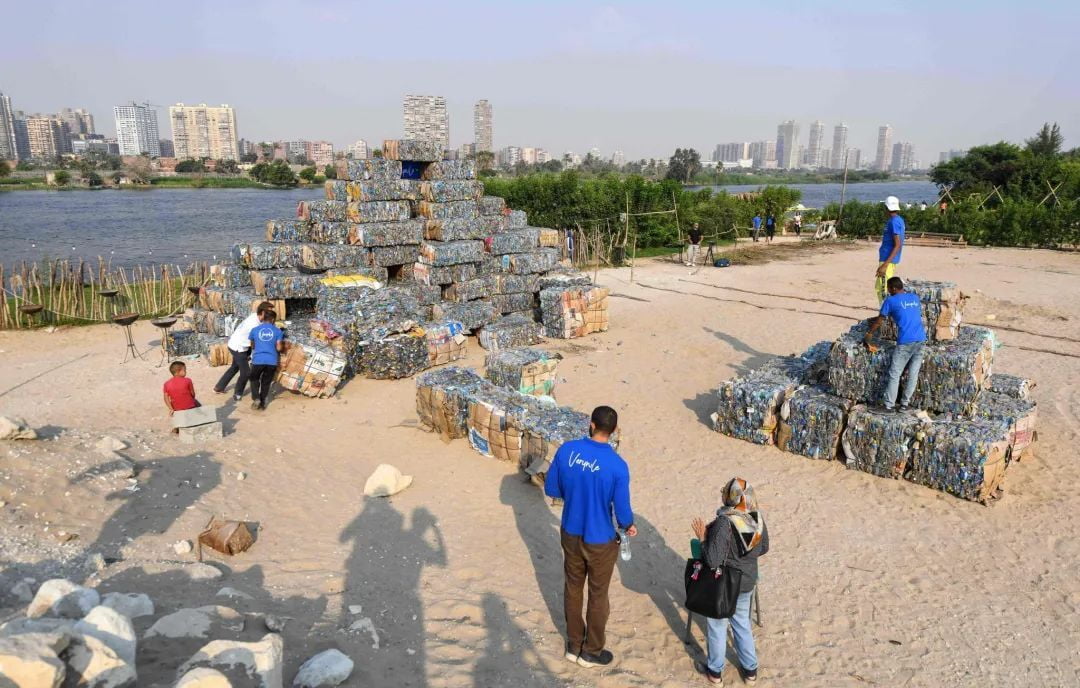
The pyramid of waste underscores the magnitude of the problem.
Designed and built by VeryNile, an eco-initiative group founded five years ago, the pyramid is made up of 170 blocks, each weighing about 45 kilograms. By assembling the bricks into the shape and scale of a pyramid, organizers hope to demonstrate the seriousness of the plastic waste problem, encourage recycling and responsible waste management, and promote the reduction of single-use materials. In addition, by mimicking Egypt's most famous monuments, organizers hope to show that plastic waste is a thorn in the side of the country's beauty and heritage.
For thousands of years, the Nile River has nourished Egypt's great civilization with its abundant fresh water, rich silt, abundant fish, navigation and trade. Today, however, the river brings with it another, far less attractive gift - plastic waste. According to Egyptian human rights organizations, about 4.5 million tons of waste flows into the Nile every year.
The Helmholtz Centre for Environmental Research also found that the Nile is one of 10 rivers responsible for 90% of plastic waste entering the world's oceans. Another study conducted by Sky News in 2021 found that 75 percent of Nile fish contain microplastics.
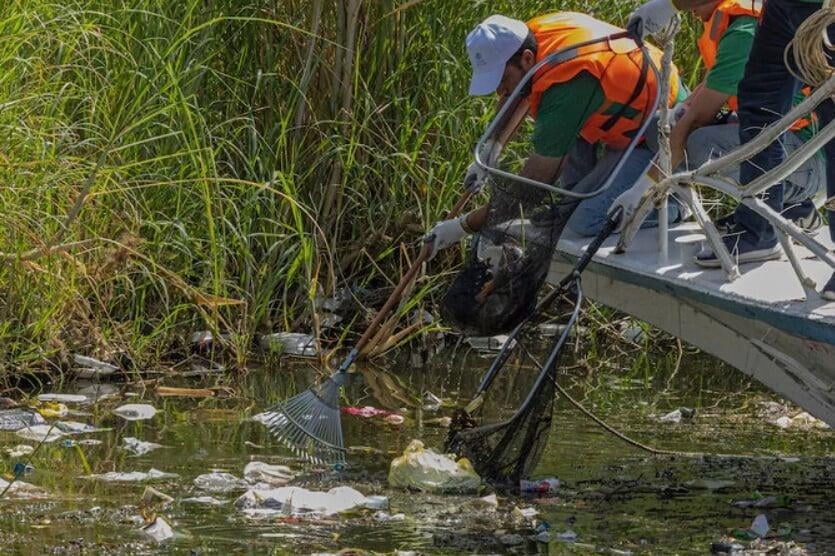
Volunteers in Cairo collect plastic from the Nile River as part of a clean-up campaign.
The Middle East and North Africa region faces many challenges in dealing with the accumulation of plastic waste; according to the World Bank, more than 570,000 tons of plastic is thrown into the Mediterranean Sea each year, wreaking havoc on ocean-dependent industries from fishing to tourism.
In addition, widespread consumerism in the Gulf countries has resulted in large amounts of discarded single-use plastics, with five GCC countries (Bahrain, Saudi Arabia, UAE, Qatar and Kuwait) ranking in the top 10 in terms of solid waste generation per capita. Saudi Arabia generates 15 million tons of waste annually, with only 5% being recycled.
Egypt is not the only country dealing with the problem of plastic waste. Lebanon, Morocco, Jordan, Oman, Bahrain, the UAE and Tunisia have all implemented local and national laws restricting the import and use of single-use plastic bags. Sharjah, Dubai and Abu Dhabi have all implemented plastic bag fees and have committed to banning plastic bags by 2024.
Kuwait, Egypt, Qatar and Saudi Arabia have drafted laws or made policy proposals to ban single-use plastic bags or replace them with biodegradable ones.
Under Saudi Arabia's Vision 2030 reform strategy, the Kingdom plans to invest more than $6 billion in recycling by 2035. Saudi civil society groups also encourage people to recycle; the Mawakeb Alajer Group has set up recycling facilities where people can drop off everything from waste paper to unwanted furniture and clothes.
Established in 2017 to develop Saudi Arabia's recycling capacity, the Saudi Investment and Recycling Company plans to achieve the goals of Vision 2030 by creating a circular economy - an economy that reuses, repairs and recycles raw materials and finished products over the longest possible period of time.
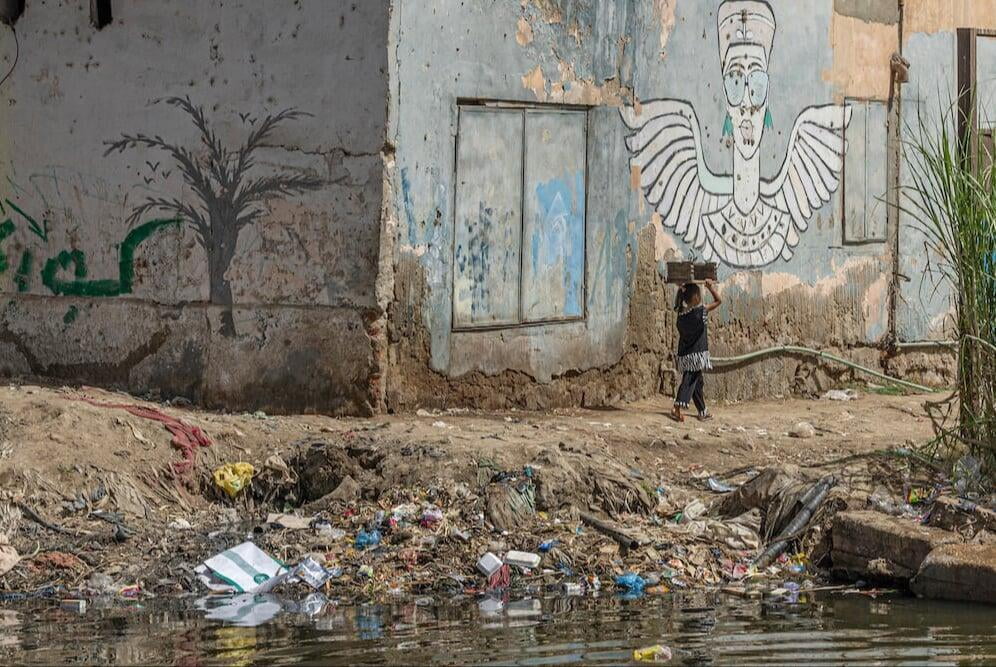
A photo taken Sept. 29, 2022, shows plastic and garbage floating along the Nile River in Cairo.
Last March, Saudi Crown Prince Mohammed bin Salman announced the Green Saudi Initiative and the Green Middle East Initiative. While their primary focus is on reducing carbon emissions, protecting and restoring natural habitats is also a priority goal.
The crown prince later announced the creation of a government agency to oversee violations of the kingdom's environmental regulations, vowing to hold polluters accountable.
Egypt is working to reduce its plastic consumption in the coming years through a national strategy aimed at eliminating the negative health, environmental, economic and social impacts of plastic. The country aims to cut its plastic bag consumption to 100 per person by 2025 and 50 per person by 2030.
Campaigns to ban single-use plastics often begin locally, such as in Egypt's Red Sea governorate, which banned the use of plastic bags and plastic cutlery in restaurants, cafes, supermarkets, grocery stores, butchers, fisheries and pharmacies, as well as during hunting and boat trips in June 2019.
Following the lead of the Red Sea province, Dahab in the southern Sinai Peninsula announced a citywide ban on plastic bags in July 2021.
COP 27, the United Nations Climate Change Conference, will be held in the resort town of Sharm El Sheikh, Egypt, in the second week of November.
At COP 26 in Glasgow last year, hundreds of countries pledged to support energy transition and climate change mitigation in the world's poorest countries - countries that emit little carbon and pollute, but are most affected by climate change.
In May, Wael Aboulmagd, Egypt's special representative to the 27th U.N. Climate Change Conference, said helping developing countries adapt to climate change will be a priority for the upcoming conference, even though wealthy countries have said they will not deliver on their pledge to provide $100 billion a year toward set targets.
In late September, Egypt called on all countries participating in COP27 to set aside their political differences. Several countries held a walkout in June to protest Russia's attendance at the UN climate conference in Bonn.
While 90 heads of state have confirmed their attendance, global economic pressures from coronavirus recovery efforts and the conflict in Ukraine may put environmental issues on hold.

